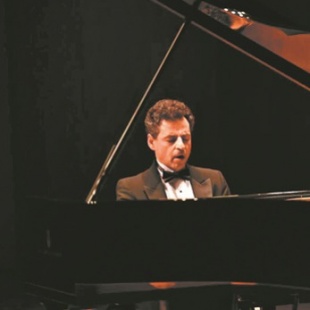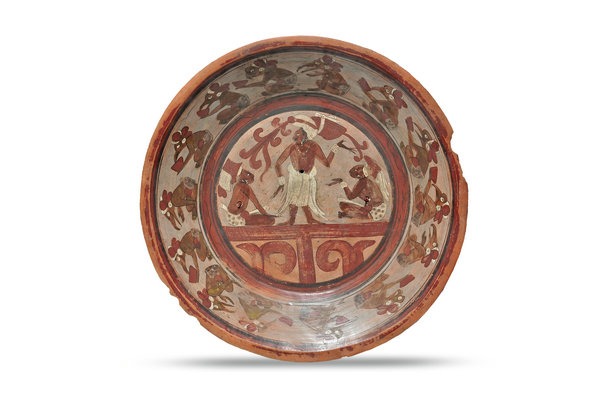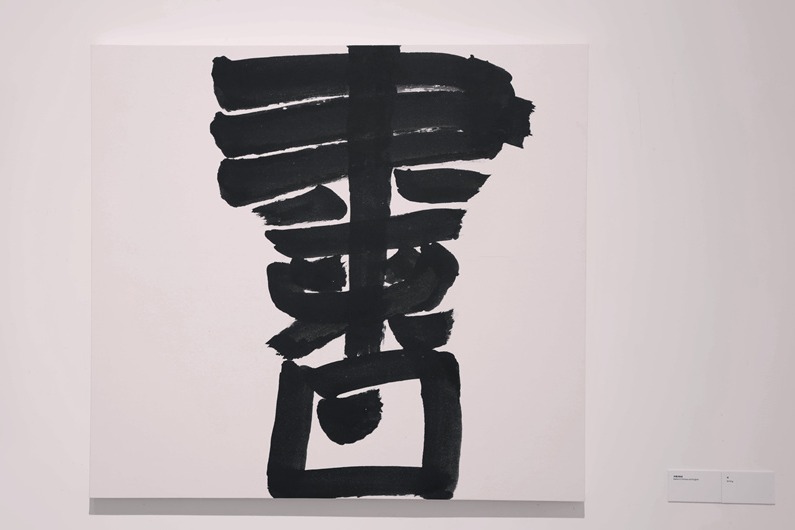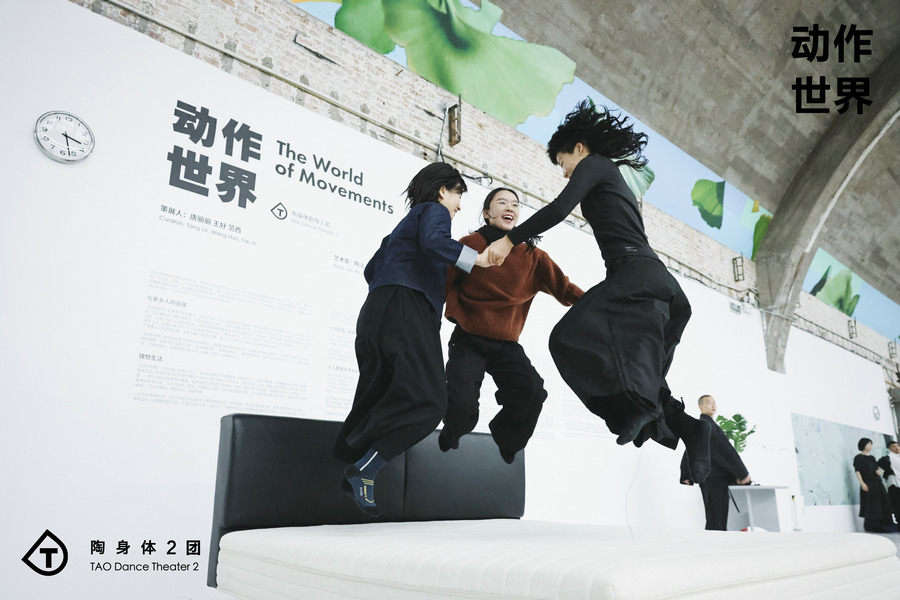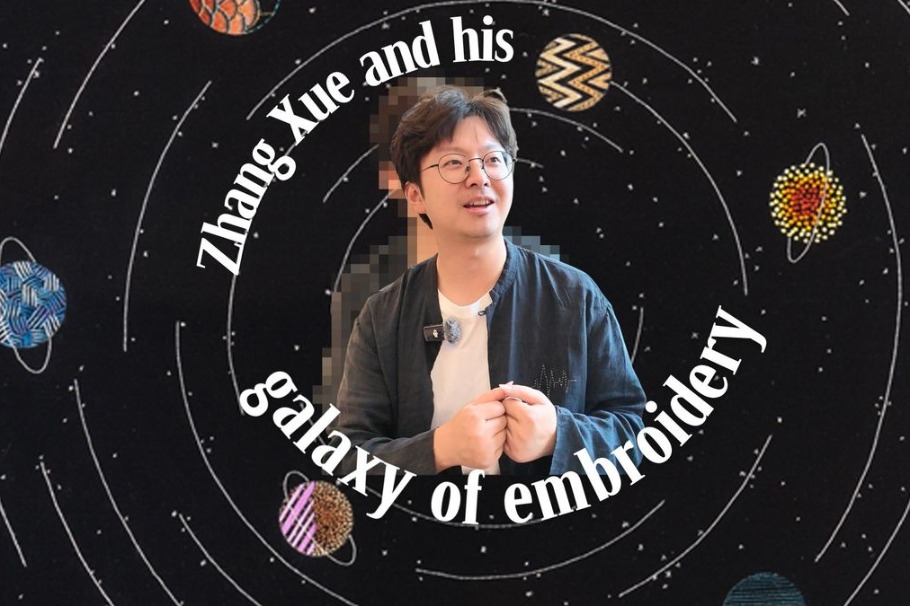A life in music: Zaslavsky inspires China's next stars
Professor boosts participation at Shenzhen festival by blending performance and education


As a piano professor at the 208-year-old University of Music and Performing Arts, Vienna, Roman Zaslavsky keeps a rigorous weekly routine.
The university, where he has held an academic position since 2017, is one of the largest art universities in the world. On its Vienna campus, the professor tutors his piano students on Mondays, Wednesdays and Fridays.
When he is not teaching, Zaslavsky locks himself in his studio and practices a wide range of classical repertoire. This part of his life is no different from that of any other professional pianist who has a long list of upcoming recitals.
"Being an artist onstage, or trying to keep the knowledge alive and push the classical tradition further — I don't know which is more important," says Zaslavsky, who gave a recital and master classes on Nov 7 and 8 in Shenzhen, Guangdong province.
Twenty-five years ago, Zaslavsky had his breakthrough as a promising young artist, winning the Jose Iturbi International Piano Competition. His career as a concert pianist took him onstage at prominent concert halls including the Berliner Philharmonie and the Royal Concertgebouw in Amsterdam. His classic albums have featured essential works such as Robert Schumann's Kreisleriana, and late works by Schumann's contemporary and personal friend, Johannes Brahms.
Zaslavsky's latest recital took place inside a bustling hall at the Bay Opera of Shenzhen, where he curated a program rich in musical styles and historical subtlety. Titled Paris Encounters, it focused on four composers who were inspired by the "City of Light".
"The program is kind of my artistic profile," says Zaslavsky. "I always try to compose programs that are connected to a certain theme, with some inner connections between the composers or the surroundings where the music was composed."
The recital opened with the romanticism of Frederic Chopin's nocturnes, mazurkas and his technically challenging Scherzo No 1 in B minor, Op 20, followed by another distinct expression of romanticism, with a Russian flavor, in selections from Sergei Rachmaninoff's Etudes-Tableaux. "Chopin's romanticism from the 19th century was prolonged in Rachmaninoff's Russian soul into the 20th century. Quite an interesting connection," explains Zaslavsky.
In the second half of his recital, the "impressionistic fragility" of Claude Debussy's Estampes met the avant-garde percussive sounds in Sergei Prokofiev's Piano Sonata No 7 in B-flat Major, Op 83. As an encore, a Rachmaninoff prelude concluded the evening.
The recital was part of the 13th Shenzhen Piano Music Festival, a government-supported public art event that rarely fails to attract enthusiasm. The audience waited in line after the performance to get Zaslavsky's autograph.
Like his multifaceted recital program, the pianist, who speaks Russian, Hebrew, English and German, had a diverse upbringing. Born in St. Petersburg in the former Soviet Union, he comes from a family with a history of playing the piano.

"My mother used to play as a child. Actually, both of my grandmothers had pianos and played as children," he recalls. "Many families had upright pianos. It was almost part of the furniture setting."
In those days, his father worked as a seismic engineer, and his mother was an English teacher. Zaslavsky spent his childhood undergoing intensive training in saber fencing and piano playing. Eventually, he chose the latter.
When he and his brother were teenagers, the family moved from St. Petersburg to Tel Aviv, where his parents still live. But music education took him further west, to Frankfurt, then to Vienna.
Over the years, he has learned his craft with legendary teachers, including Igor Lebedev in St. Petersburg, Naum Shtarkman in Moscow, Arie Vardi in Tel Aviv and Hanover, as well as Russian-German pianist Irina Edelstein and Brazilian pianist Fany Solter. "The experience was very multicultural, and it has become part of my personality," he says.
Now, as a teacher, Zaslavsky is eager to pass down that knowledge, and is especially amazed to see a new generation of Chinese artists taking the stage by storm.
In Vienna, Chen Linxi has been studying with Zaslavsky for three years. The young pianist from Chongqing used to study at the Shanghai Conservatory of Music. Now, he has developed chemie, the German word for "chemistry", with his professor.
"I admire his musical interpretations," says the 19-year-old. "Whenever he implies a musical touch, I grasp his thought instantly."
"Every single day, he is at the concert hall. He reads, he listens. It's amazing," says Zaslavsky, commenting on his student. "I observe a huge development in piano music in China. Young pianists have been much more exposed to the substance of music. I almost see the future of classical music here."
"The robust classical music scene has shaped public art in the Greater Bay Area positively and profoundly," says Yang Suxian, who cofounded the Shenzhen Piano Music Festival and has spearheaded the event since its establishment in 2013. Five competitors from this year's International Fryderyk Chopin Piano Competition in Warsaw have performed in previous piano music festivals, she adds.

Although piano production and sales have flattened in recent years, the performance market still seems robust in China. Outside popular destinations for artists like Beijing and Shanghai, classical music superstars increasingly find themselves in the Guangdong-Hong Kong-Macao Greater Bay Area with a steady music fan base.
In November alone, there were concerts featuring Bruce Liu, Aristo Sham and Denis Matsuev, all of whom championed the world's most prestigious piano competitions. The Verbier Festival, an international classical music event famous for its alpine resort and chamber music tradition, is also set to venture outside Switzerland for the first time to Shenzhen next January. Legendary pianists, including Martha Argerich and Mikhail Pletnev, are about to share the stage.
Also preparing for more China tours is Zaslavsky, who can be seen busily plucking his powerful, ivory-like fingers on his smartphone, adding his Chinese colleagues as friends. The pianist has familiarized himself with one of China's most ubiquitous smartphone apps. "I read subscription channels. I even use mobile payment. This is a huge advantage, because otherwise you get lost here," says Zaslavsky, smiling.
But the pianist is still as old-school as he can be. In his suitcase, there are usually books to read on tour. "I've brought a book on Chopin with me. It's very profound, with new research on Chopin's life and his music. Very, very interesting," he adds. Some fresh interpretations might find their way onstage when the artist tours numerous Chinese cities in late 2026.
The author is a freelancer for China Daily.


